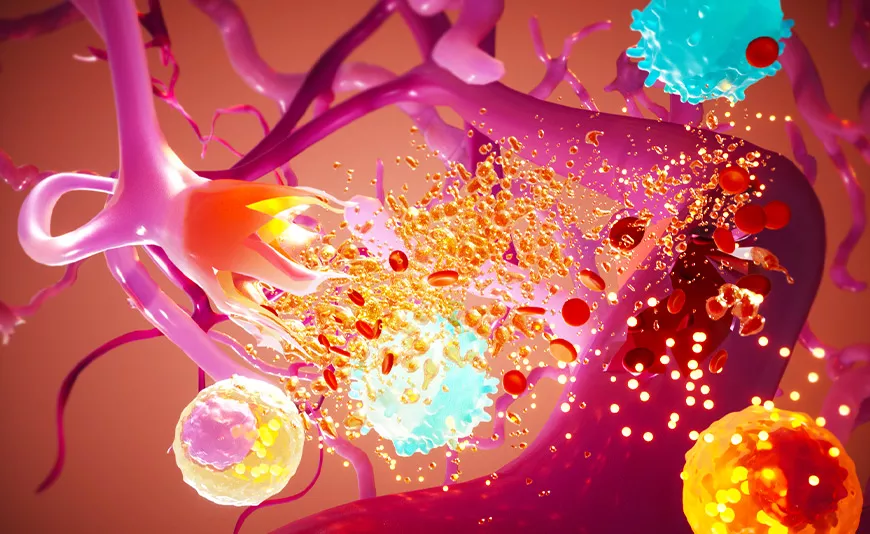Discovery of macrophages involved in microvascular degeneration
Diabetic retinopathy (DR) is a frequent complication of type 2 diabetes and one of the main causes of blindness in adults. In its early stages, the disease is characterised by loss of retinal microvessels and microhaemorrhages, for which no treatment is available.

Over time, these changes can lead to a proliferative form (abnormal growth of new blood vessels) of the disease, which leads to rapid loss of visual acuity if left untreated. The presence of activated macrophages in contact with vessels in the retina and inflammatory cytokines in patients' ocular fluids indicate sustained neuroinflammation in the early stages of the disease. However, the mechanisms linking neuroinflammation to hyperglycaemia and above all to the dyslipidaemia characteristic of patients with DR are still poorly understood.
In a recent issue of the Journal of Clinical Investigation, Xavier Guillonneau's group in Florian Sennlaub's team, in collaboration with the Lariboisière hospital and the Conde de Valenciana ophthalmological foundation in Mexico City, analysed plasma and retinal tissue samples from patients with type 2 diabetes in order to study the role of macrophages in the progression of the disease.
This work, supported by UNADEV, demonstrates for the first time that macrophages, which have a lipid overload associated with the Perilipin-2 protein, accumulate in areas of the retina showing the microhaemorrhages characteristic of DR. The team has shown that lipids present in the bloodstream, and to a lesser extent glucose, promote this differentiation into pathogenic macrophages expressing perilipin-2, which have a deleterious activity on the vessels. The group also shows the inhibition pharmacological of ways involved in this process reduced response inflammatory and degeneration of micro-vessels.
This original work highlights a new pathological mechanism in glucose-independent diabetes. This major discovery could have implications therapeutic very promising treatment phases precoces de la RD.
